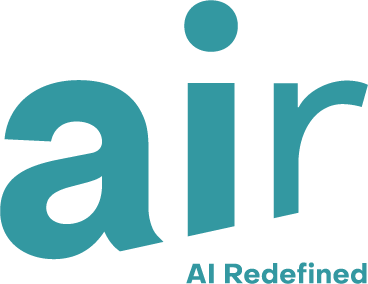Build, train, and operate AI agents in simulated or real environments shared with humans
Unique advantages of Cogment™
Continuously train AIs & humans together
Less data required
Real-time adaptation
Faster training
Fostering of trust
Orchestrate complex intelligence ecosystems
Best of human & AI capabilities
Human supervision when it matters
Hybrid AI: Compliance & high performance
Modular approach: reduce compute usage & faciliate validation
Iterate smoothly from simulation to real
Safe & simple design, and training in simulation
Progressive deployment to real environment
Real environments, digital twins, numerical simulations, etc.
What is Cogment™
Cogment™ is the first open-source platform designed to address the challenges of continuously training humans and AI together in a shared environment.
Cogment™ shines with these AI approaches
Cogment borrows a lot of its formalism from Reinforcement Learning (RL), in particular Markov Decision Processes (MDPs), and to Multi-Agent Systems (MAS), making Reinforcement Learning (RL) and Multi-Agent Reinforcement Learning (MARL) agents and training processes a natural fit.
Because it’s designed to enable Humans and AIs to operate in shared environments, it’s particularly well suited to any kind of Human-In-the-Loop Learning (HILL) process:
Imitation Learning (IL) / Behavior Cloning (BC)
RL from human feedback (RLHF)
Active Learning
At any scale, any complexity
Cogment is designed to allow the training of complex agent architectures on sequential decision-making tasks in complex environments, supporting humans in the loop.
It shines in multi-agent contexts, regardless of their learning mechanisms (or, for that matter, whether they are of the learning kind or not). Cogment also relies on the Actor's abstraction, meaning that human users and learning or non-learning agents alike are treated in the same way from a high level point of view, rendering them interchangeable.
As such, Cogment is suited for, among others, these contexts:
Easily bootstrapping a given system by using human users, or heuristic agents, or both, then transitioning seamlessly to ML implementations
Architecture multiple ML approaches to contribute to a single role, either by balancing them through specific rulesets, or specific performance metrics, or any other criteria
Comparing different agent types/implementations without requiring any change in the implementation of the environment
Need a tailored human-AI solution?
If your project requires functionalities that aren’t listed here, we can collaborate on a bespoke human-AI solution with you.
With a proven ability to between theory and application in countless specialized contexts, we’re confident that world-class multi-disciplinary team can design a solution tailored to your specific needs.

